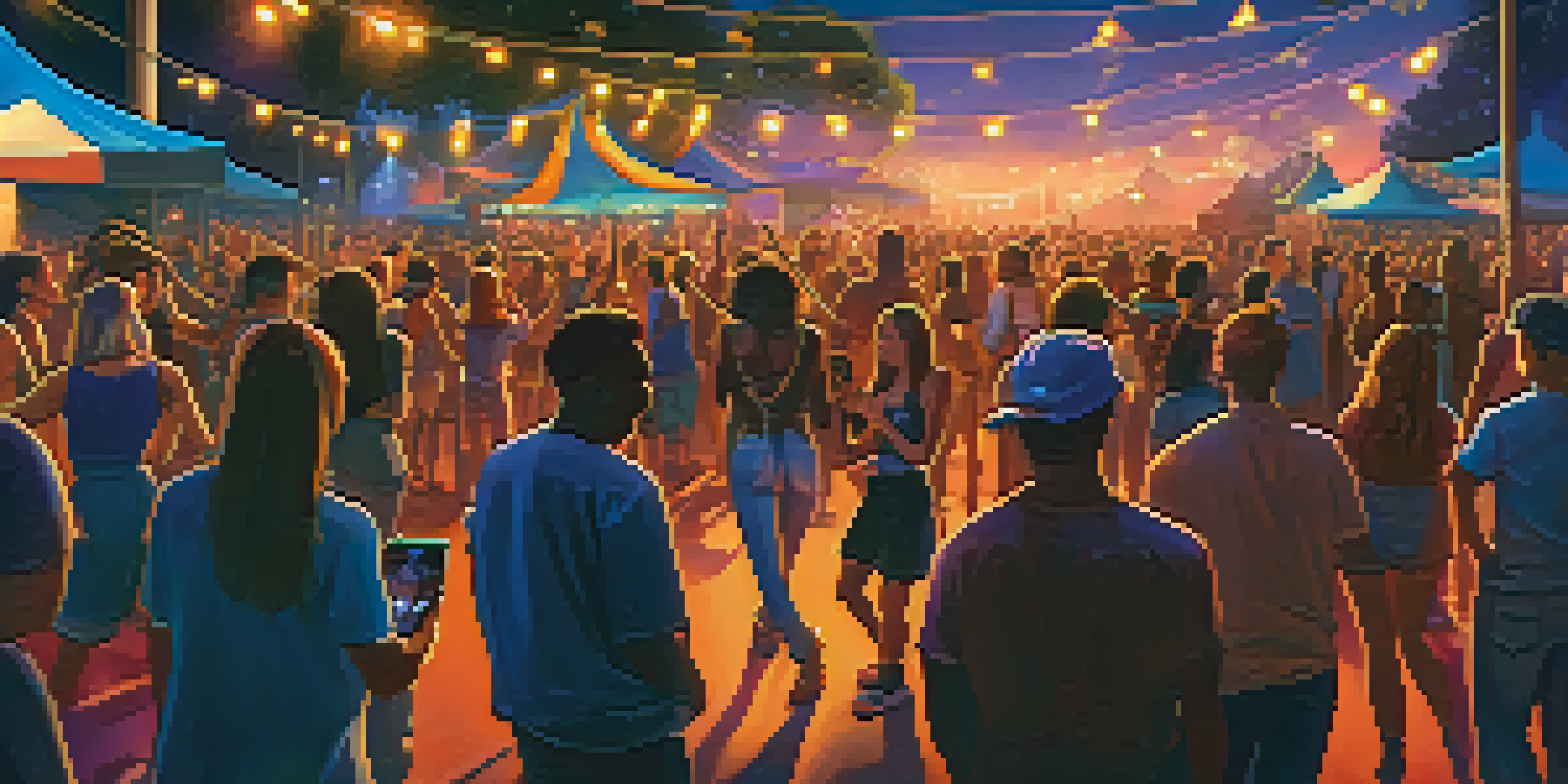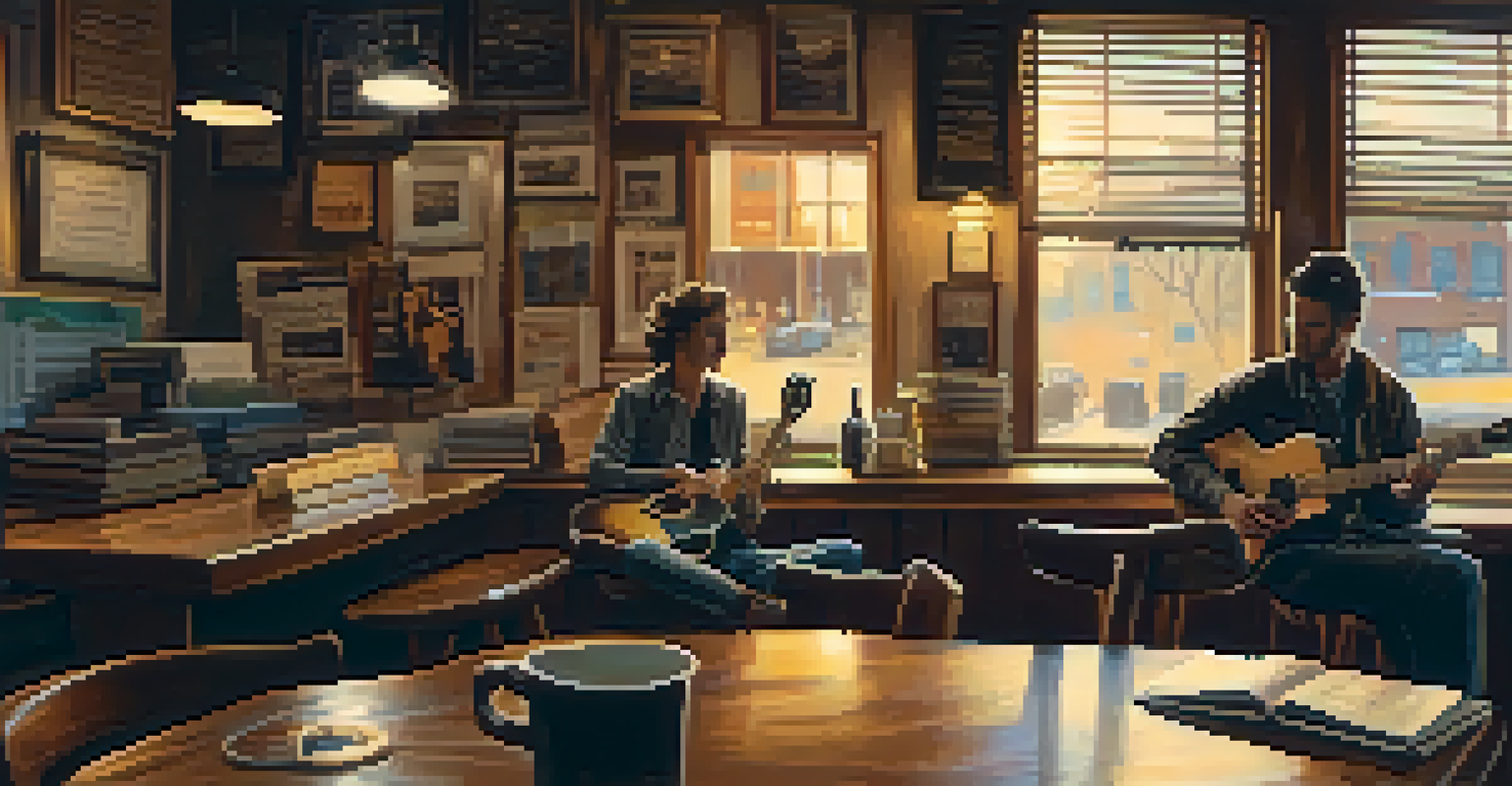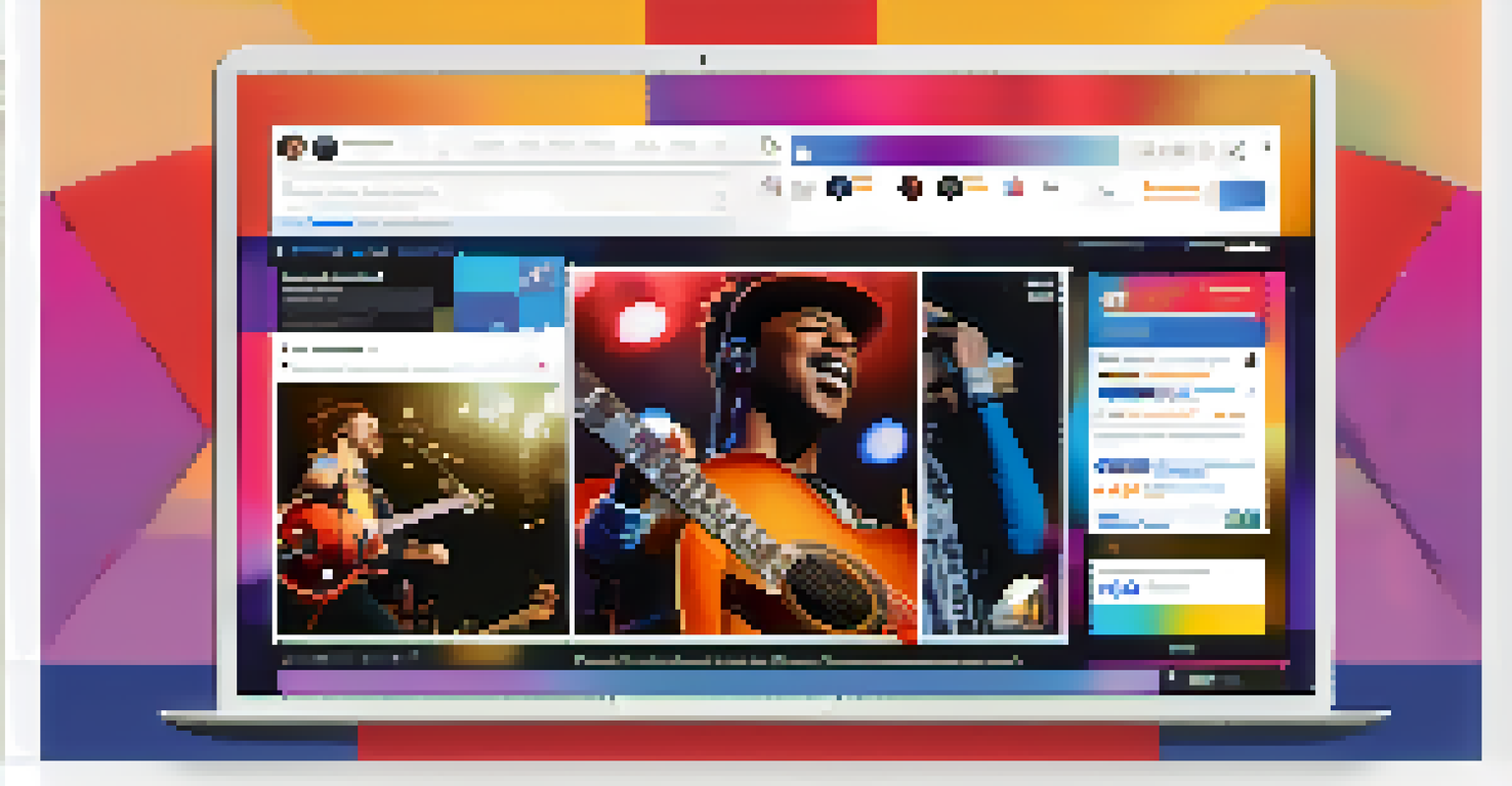Building Connections: Networking in Music Collaboration

The Importance of Networking in the Music Industry
Networking in the music industry is more than just exchanging business cards; it's about building lasting relationships. These connections can lead to collaborations that enhance creativity and expand your reach. In a field where opportunities often come from who you know, having a robust network is crucial for success.
Your network is your net worth.
Think of networking as planting seeds in a garden. Each connection you make can bloom into unique opportunities, whether it's a songwriting partnership or a chance to perform at a renowned venue. The more diverse your network, the richer your creative possibilities become.
Ultimately, networking isn’t just about personal gain; it’s about contributing to a community. By supporting fellow musicians, sharing resources, and collaborating, you create an ecosystem that benefits everyone involved.
Finding Your Networking Niche in Music
Not all networking opportunities will suit your style or goals; it’s essential to find your niche. Whether you're a solo artist, a producer, or part of a band, identifying where you fit in can help you target the right connections. Look for events, platforms, and communities that align with your musical genre and aspirations.

For example, if you’re an electronic music producer, attending music festivals or joining online forums specifically for electronic artists can yield more fruitful connections. Being in the right environment allows you to engage with like-minded individuals who share your passion.
Networking Builds Lasting Relationships
Creating meaningful connections in the music industry can lead to exciting collaborations and opportunities.
Remember, it’s about quality over quantity. Building a few strong relationships in your niche can be far more beneficial than having a vast but shallow network.
Utilizing Social Media for Music Networking
In today's digital age, social media is a powerful tool for networking. Platforms like Instagram, Twitter, and TikTok allow musicians to connect globally, share their work, and engage with their audience. By actively participating in discussions and showcasing your music, you can attract attention from other artists and industry professionals.
Collaboration allows us to know more than we are capable of knowing by ourselves.
Consider using social media to share behind-the-scenes content, collaborate on projects, or even host live jam sessions online. These activities not only highlight your talent but also invite others to connect with you, fostering collaboration opportunities.
However, be genuine in your interactions. Authenticity goes a long way in building trust and forming meaningful connections in the music community.
Attending Live Events and Music Festivals
Live events and music festivals are prime opportunities for networking in person. These gatherings are filled with musicians, producers, and industry insiders, making them perfect for meeting potential collaborators. Engaging in conversations at these events can lead to exciting partnerships and future opportunities.
When you attend these events, approach them with an open mind and a friendly demeanor. Introduce yourself, share your story, and ask others about their projects. You never know where a casual chat might lead, whether it’s a new collaboration or a future performance slot.
Find Your Niche for Effective Networking
Identifying your unique space within the music scene helps target the right connections for growth.
Additionally, don't underestimate the power of follow-ups after the event. Sending a simple message to say it was great to meet someone can solidify that connection and keep the door open for future collaborations.
Building Relationships Through Collaboration
Collaboration is at the heart of the music industry, and it’s a fantastic way to build connections. By working with other musicians, you not only expand your skills but also deepen your relationships. Each collaboration is an opportunity to learn and grow together, creating a bond that can lead to future projects.
Consider reaching out to artists whose work you admire or those in your local scene. Proposing a collaborative project can be a great icebreaker. Whether it’s a songwriting session, a remix, or a joint performance, these experiences can strengthen your network.
Moreover, collaborations often lead to cross-promotion, where both artists share the work with their respective audiences. This mutual benefit can amplify your reach and introduce you to new fans and collaborators.
Leveraging Local Music Communities
Local music communities are invaluable for networking. Joining local music groups, attending open mics, or participating in community events can help you meet other musicians and industry professionals. These smaller, more intimate settings allow for deeper connections and foster a sense of belonging.
For instance, many cities have music collectives or co-working spaces where artists gather to share ideas and collaborate. Engaging in these communities can lead to valuable relationships and even mentorship opportunities.
Social Media Amplifies Music Connections
Engaging authentically on social platforms can attract attention and foster collaborations with other artists.
Additionally, getting involved with local events or initiatives can position you as an active member of the community, making it easier for others to approach you for collaborations.
Creating a Personal Brand for Networking Success
A strong personal brand can enhance your networking efforts in the music industry. Your brand represents who you are as an artist and what you stand for, making it easier for others to identify and connect with you. Consider how you present yourself through your music, social media, and public appearances.
For example, developing a consistent visual aesthetic across your platforms can make you more recognizable. It tells a story about your music and sets you apart from others, making it easier for people to remember you.

Ultimately, a well-defined personal brand attracts like-minded individuals who resonate with your message, making networking more meaningful and productive.
The Long-Term Benefits of Networking in Music
Networking is not just a short-term strategy; its benefits can extend long into your career. The relationships you build today can lead to opportunities well into the future, including collaborations, gigs, and industry insights. Over time, these connections can become invaluable to your artistic journey.
Think of networking as a long-term investment. The more you nurture these relationships, the more likely they are to yield positive returns down the line. Regularly engaging with your network helps maintain those connections and can open doors when you least expect it.
In the ever-evolving music landscape, having a solid network can provide a safety net during challenging times, offering support and resources when needed. So, keep those connections alive, and watch them flourish!